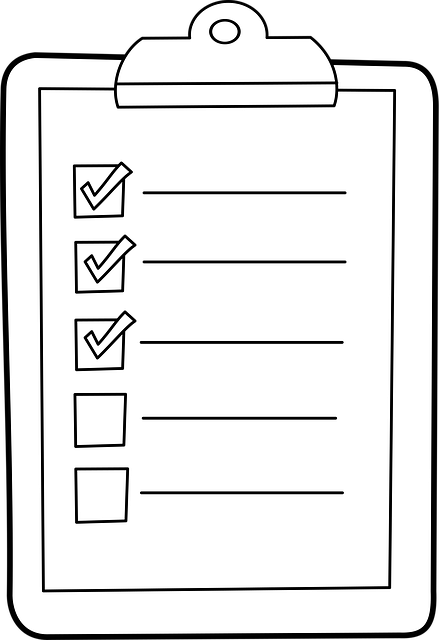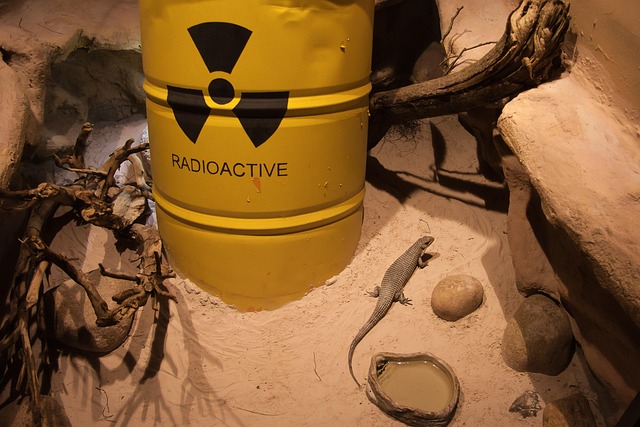Professional translation services for UK Environmental Impact Assessments (EIAs) are indispensable for foreign companies navigating strict regulations. They ensure accurate communication of technical and scientific documents, enhancing transparency and compliance. Specialized translators master source and target languages, regulatory requirements, and cultural nuances, crucial for precise EIA documentation and approval. These services streamline the process, demonstrating environmental responsibility and facilitating informed decision-making in the UK.
Are your impact assessments aligned with UK regulations? Navigating environmental impact assessments (EIAs) requires precision and clarity, especially with strict UK regulator expectations. This comprehensive guide explores the role of translation services in ensuring compliance, as many projects cross borders and languages. We delve into key elements of effective EIAs, common challenges in translation accuracy, best practices for transparent reporting, regulatory expectations, and future trends, emphasizing the vital contribution of professional translation services.
- Understanding UK Environmental Impact Assessments
- The Role of Translation Services in Clarity
- Ensuring Compliance for Regulators' Approval
- Key Elements of Effective Impact Assessments
- Common Challenges in Translation Accuracy
- Best Practices for Transparent Reporting
- Regulatory Expectations for Impact Assessment
- Case Studies: Successful Translation Strategies
- Tools and Technologies for Efficient Translation
- Future Trends in Environmental Impact Assessment
Understanding UK Environmental Impact Assessments

In the UK, Environmental Impact Assessments (EIA) play a pivotal role in gauging the potential ecological consequences of development projects before they’re approved. This stringent process ensures that new constructions, industrial activities, or changes to existing infrastructure don’t cause significant harm to the environment. For foreign companies looking to expand into the UK market, understanding and navigating these assessments is crucial. Translation services for UK Environmental Impact Assessments can bridge this language gap, ensuring that all documentation adheres to the necessary standards.
By utilising professional translation services, businesses can ensure their EIA reports are accurately conveyed in English, meeting the requirements of UK regulators. This meticulous process involves translating not just words but also technical terminology and complex scientific data, preserving the integrity and accuracy of the original information. Effective translation facilitates a smoother regulatory journey, enabling companies to demonstrate their commitment to environmental stewardship from the outset.
The Role of Translation Services in Clarity

In the intricate process of navigating and preparing UK Environmental Impact Assessments (EIA), translation services play a pivotal role in ensuring clarity for regulators. With regulations and terminology specific to the UK, accurate translation is essential to convey the intended meaning effectively. Professional translation services specializing in EIA documentation bridge the gap between languages, making complex assessments accessible to UK environmental authorities.
These services employ experts with deep knowledge of both the source and target languages, as well as an understanding of environmental regulations. They meticulously translate not only text but also ensure cultural nuances and technical terminology are appropriately conveyed, thereby facilitating a smoother review process for regulators. By leveraging translation services for UK EIA assessments, organizations can enhance transparency and maintain compliance, contributing to a more efficient regulatory environment.
Ensuring Compliance for Regulators' Approval

To secure approval from UK regulators, impact assessments must be meticulously prepared and transparently presented. This involves a comprehensive analysis of potential environmental, social, and economic impacts, ensuring compliance with strict regulatory standards set forth by bodies like the Planning Authority. For businesses operating in the UK, engaging professional translation services for Environmental Impact Assessments (EIA) is a strategic step to achieve this clarity and accuracy in documentation.
These specialized translation services ensure that EIAs are not only linguistically precise but also technically sound, adhering to the nuances of UK environmental regulations. By translating impact assessments into the official languages recognized by regulators, companies can demonstrate their commitment to transparency and responsible practices. This enhances the credibility of their projects and smoothens the approval process, ultimately facilitating sustainable development in the UK.
Key Elements of Effective Impact Assessments

Effective impact assessments are crucial for demonstrating compliance with environmental regulations, particularly in the UK where robust scrutiny is expected from regulators. A comprehensive assessment should capture key elements such as identifying and predicting potential environmental impacts, evaluating alternatives, and proposing measures to mitigate any adverse effects.
When it comes to translation services for UK Environmental Impact Assessments, professional translators play a vital role in ensuring accuracy and consistency across languages. They help convey complex scientific and technical information clearly, allowing assessors to focus on strategic decision-making rather than language barriers. This not only facilitates efficient communication with regulators but also promotes informed environmental policy-making.
Common Challenges in Translation Accuracy

The accuracy of translated documents is a critical aspect of ensuring effective communication, especially in highly regulated sectors like environmental impact assessments (EIA). Common challenges arise when translating EIAs from one language to another due to the specialized terminology and nuanced regulatory requirements involved. Professional translation services for UK Environmental Impact Assessments require a deep understanding of both the source and target languages, as well as knowledge of local environmental regulations and cultural contexts.
Machine translations, while accessible, often fall short in capturing the precise meaning and intent behind the original text. Human translators are essential to overcome these challenges, ensuring that technical terms are accurately conveyed, regulatory compliance is maintained, and the overall integrity of the assessment document is preserved. Skilled translators who specialize in environmental impact assessments can provide critical insights, facilitating a seamless review process for UK regulators.
Best Practices for Transparent Reporting

To ensure your UK Environmental Impact Assessments (EIA) are clear and transparent for regulators, adopt best practices in reporting. Start by using straightforward language that avoids jargon or complex terminology; this clarity aids understanding across diverse stakeholder groups, including regulatory bodies. Provide comprehensive data and evidence to support your assessment’s findings, ensuring all sources are properly cited. This not only bolsters credibility but also allows regulators to verify the information.
Visual aids, such as charts and diagrams, can effectively convey complex EIA data. Include these where appropriate, making sure they are well-labelled and easy to interpret. Additionally, offer a detailed methodology section that outlines your assessment process, assumptions, and limitations. This transparency facilitates regulatory scrutiny and fosters trust in the integrity of your impact assessments, especially when seeking approval for projects through translation services tailored for UK EIA requirements.
Regulatory Expectations for Impact Assessment

In the UK, regulatory expectations for impact assessments are high, with a strong emphasis on thoroughness and transparency. When it comes to environmental impact assessments (EIA), regulators expect detailed analyses that account for various factors such as ecological, social, and economic impacts. This includes assessing the potential consequences of development projects on local communities, biodiversity, and the environment as a whole.
Translation services play a crucial role in ensuring these assessments are clear and accessible to UK regulators. Accurate translation of technical reports and documents into English is essential for demonstrating compliance with regulatory requirements. Professional translation ensures that all stakeholders, including regulators, have a comprehensive understanding of the assessment’s findings and recommendations, facilitating informed decision-making processes.
Case Studies: Successful Translation Strategies

In the realm of UK environmental regulations, clear and concise communication is key. Case studies highlighting successful translation strategies for Environmental Impact Assessments (EIAs) showcase the importance of professional translation services. These case studies reveal how nuanced language requirements can be met, ensuring compliance and effective communication with UK regulators.
By leveraging translation services specialised in EIAs, companies have navigated complex terminology and cultural nuances, resulting in impactful assessments. This approach has led to positive outcomes, including regulatory approval and successful project implementations. The success stories emphasise the value of clear, accurate translations, demonstrating that professional services can be a game-changer for organisations navigating the UK’s stringent environmental assessment processes.
Tools and Technologies for Efficient Translation

In the realm of UK environmental impact assessments, efficient communication is paramount, especially when dealing with complex regulatory requirements. One of the key enablers for achieving this clarity is the strategic use of translation services and advanced tools. These technologies play a vital role in ensuring that all stakeholders, including regulators, have access to accurate and comprehensive documentation.
Translation services for UK Environmental Impact Assessments offer more than just word-for-word conversion. They involve specialized professionals who understand the nuances of both the source and target languages, as well as the regulatory context. This ensures that technical terms are accurately rendered, preserving the integrity of the assessment’s content. Advanced translation technologies, such as machine translation tools integrated with human review, further enhance efficiency. These tools can swiftly process large volumes of text, enabling faster turnaround times without compromising quality.
Future Trends in Environmental Impact Assessment

The future of environmental impact assessments (EIA) is set to be shaped by several emerging trends, particularly in response to the ever-evolving environmental landscape and increasing regulatory scrutiny. One key development is the integration of advanced technologies, such as AI and remote sensing, which can enhance assessment accuracy and efficiency. These tools enable more detailed data collection and analysis, facilitating a comprehensive understanding of potential ecological impacts.
Additionally, there’s a growing emphasis on adaptive management and long-term monitoring. This approach involves continuous evaluation and adjustment of EIA methods to reflect changing environmental conditions and new scientific insights. As the UK navigates its post-Brexit regulatory environment, translation services for UK Environmental Impact Assessments will play a crucial role in ensuring compliance with evolving standards while facilitating international collaboration and knowledge exchange.
Ensuring your UK Environmental Impact Assessments (EIAs) are clear, accurate, and compliant is essential for regulator approval. By understanding the key elements of effective EIAs and leveraging translation services to navigate language barriers, organizations can meet regulatory expectations. Best practices in transparent reporting, coupled with tools and technologies designed for efficiency, empower businesses to successfully manage the complexities of environmental assessments. This article has explored these strategies, highlighting the crucial role of translation services in facilitating clear communication throughout the process, ultimately contributing to successful project outcomes.
